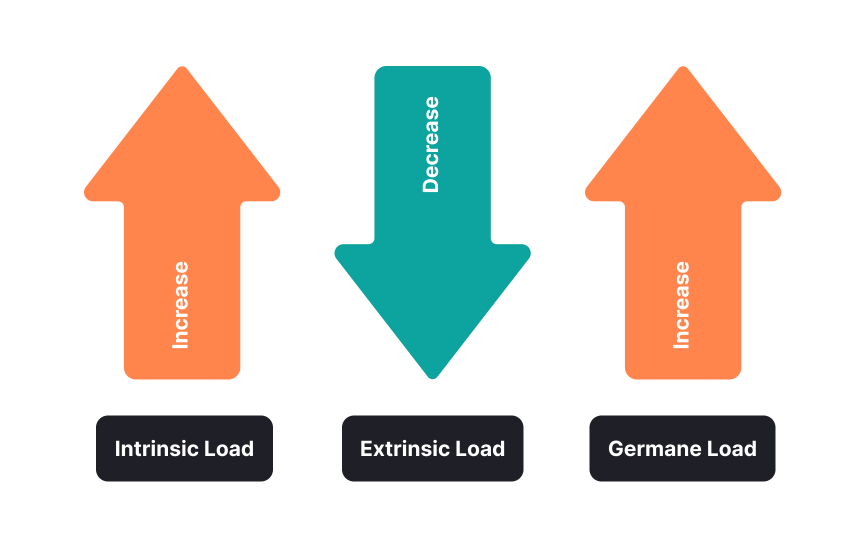Intrinsic, extraneous, and germane load
Intrinsic cognitive load refers to the complexity inherent in the material or task itself. For example, using a new software with many advanced features naturally requires more mental effort because the task itself is complex.
Extrinsic cognitive load comes from the way information or tasks are presented in the interface. If the new software’s interface is cluttered or poorly organized, it adds unnecessary difficulty, making even simple tasks confusing and hard to navigate.
Germane cognitive load is the effort put into actually learning and becoming proficient with the interface.
Effective UX minimizes extrinsic load and manages intrinsic load, while enhancing germane load, making the overall user experience smooth and rewarding.

